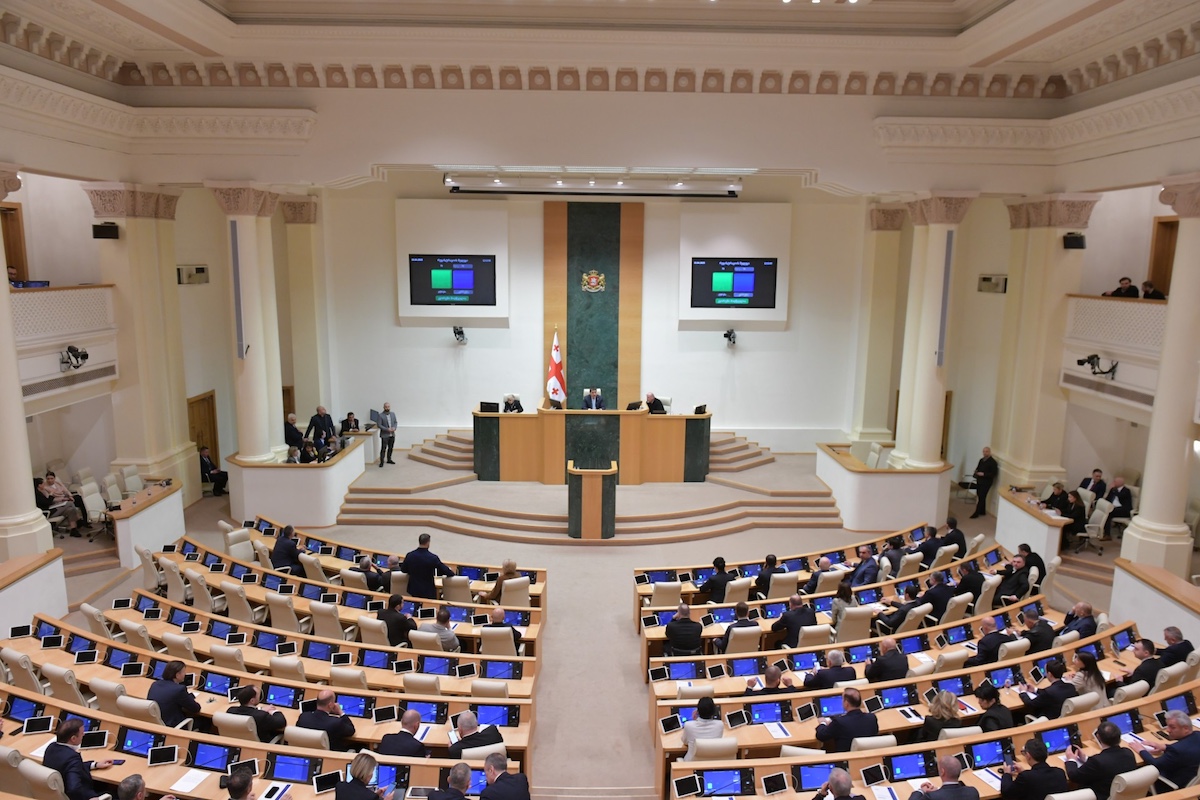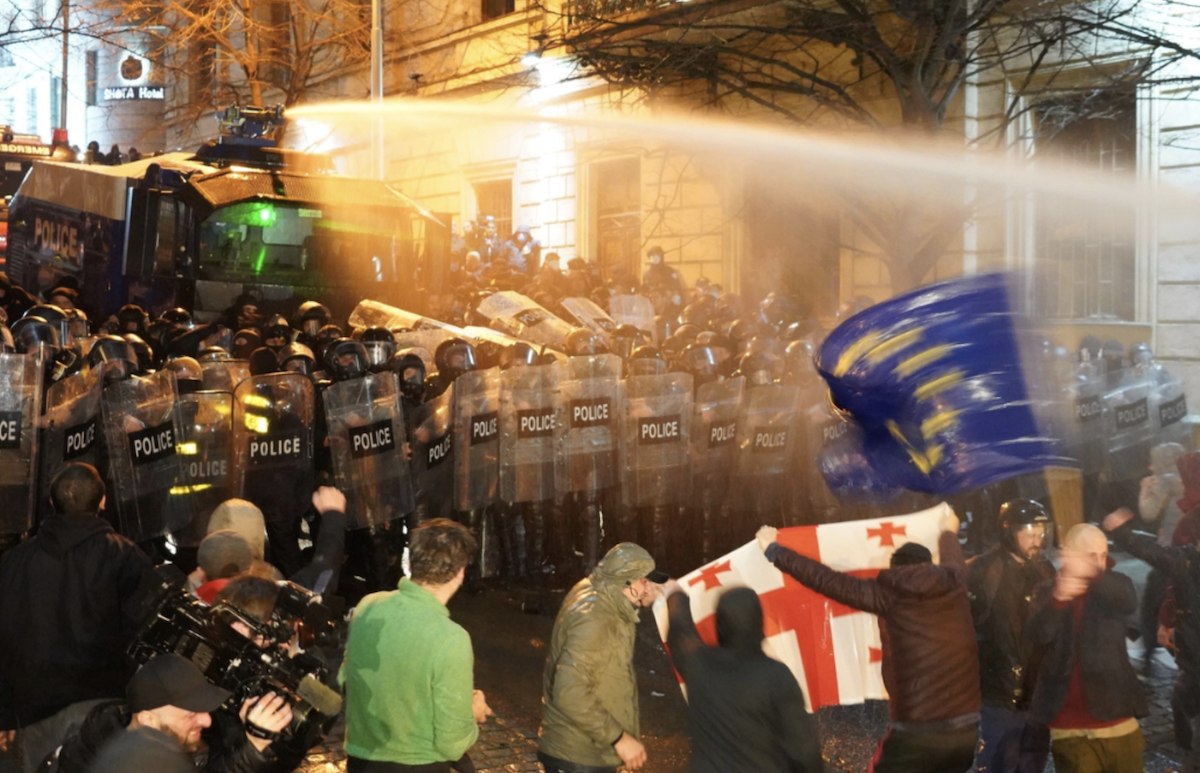Venice Commission urges Georgian authorities to repeal laws banning foreign funding
Venice commission on Georgia
The Venice Commission of the Council of Europe has released its opinion on the repressive laws adopted by the ruling Georgian Dream party concerning foreign funding. It called on the authorities to repeal the “Law on the Registration of Foreign Agents” — presented as an analogue of the US FARA — as well as amendments to the “Law on Grants” and the “Law on Broadcasting,” which restrict the receipt of foreign funding.
The Commission’s opinion also notes that the Anti-Corruption Bureau cannot be considered an independent or autonomous body and therefore cannot be entrusted with the power to oversee the implementation of the aforementioned laws.
The document states that the ruling Georgian Dream party, the head of the Anti-Corruption Bureau Razhden Kuprashvili, and the director of the NGO Funding Agency Tamar Zodelava did not cooperate with the Venice Commission in the course of preparing the opinion.
According to representatives of the Venice Commission, the opinion was drafted at the request of the Monitoring Committee of the Parliamentary Assembly of the Council of Europe.
As stated in the document, the Venice Commission analyzed the aforementioned laws systemically and as a whole, since all of them are aimed at “preventing undue foreign influence.”
What the commission’s opinion says
On “foreign agents” registration law:
● The lack of clarity and precision in the law’s wording allows for its arbitrary enforcement, while the terms used in the text are stigmatizing;
● The Anti-Corruption Bureau, which lacks sufficient guarantees of independence and political neutrality, has been granted excessive discretionary powers to ensure compliance;
● Violations of the law may carry criminal liability, yet the broadly worded provisions defining the offence leave wide room for interpretation and fail to ensure transparency or legal certainty. The severity of punishment is also disproportionate;
● The combination of vague provisions, broad powers, and insufficient safeguards creates a risk of arbitrary application, selective justice, and political misuse;
● Overall, the legal framework established by Georgia’s “foreign agents” registration law poses a threat to the rule of law, civil society, and democratic freedoms. The commission recommends repealing Georgia’s FARA-style legislation.
On Law on Grants:
● The amendments to the Law on Grants introduce a requirement for prior government approval of foreign grants — a measure that lacks a clear legal basis in principles of necessity and proportionality;
● Moreover, the amendments do not define clear and objective criteria for refusing such approval and provide insufficient safeguards, leaving wide room for arbitrary or discriminatory application;
● The extensive powers granted to the Anti-Corruption Bureau for investigation and enforcement, combined with limited procedural timeframes and disproportionate sanctions, undermine fairness and due process;
● The Commission recommends repealing or, at the very least, thoroughly revising the amendments to ensure that any restrictions are necessary, proportionate, and clearly defined, and that they are accompanied by robust procedural and judicial safeguards.
On Broadcasting law:
● The amendments impose a complete ban on foreign funding for broadcasters, using an overly broad definition of “foreign authorities.”
● The ban makes no distinction between funding that genuinely threatens democratic integrity and funding that supports legitimate journalistic and civic activities.
● As a result, the law undermines media pluralism and does not meet standards of necessity and proportionality; it is therefore recommended that it be repealed.
On political associations of citizens law
● The new amendments completely ban political parties from receiving free lectures or seminars from legal entities or associations in Georgia or abroad. These changes are part of broader restrictions on foreign assistance.
Recommendations of the commission
The Venice Commission recommends adopting an inclusive approach in future Georgian legislation to ensure its legitimacy.
“The commission regrets that the authorities in Georgia did not wish to participate in the preparation of this opinion and reiterates its readiness to discuss the issues of concern in line with international standards.
The Venice Commission is also ready to provide further assistance to the Parliamentary Assembly on this matter,” the document published by the Venice Commission states.
The opinion also notes that when developing future legislation on foreign funding, it is important to take the following recommendations into account:
- Apply a systematic approach, avoiding the adoption of multiple legislative acts that operate in parallel and cumulatively.
- Narrow the scope of the laws by providing precise definitions of key terms and limiting the discretionary powers of executive bodies, ensuring the law is applied only when there is a clear and concrete risk to national security.
- Avoid using the term “foreign agent” or any similar stigmatizing label, and remove any requirement for individuals or organizations to display such a designation in their materials.
- Limit obligations imposed on specific entities to those strictly necessary and proportionate to achieve legitimate objectives, avoiding excessive administrative burdens and disproportionate fines.
- Clearly define and justify the necessity and proportionality of penalties, ensuring safeguards against unlawful application while upholding principles of legal certainty and predictability.
- Implement robust procedural guarantees, including independent enforcement bodies, clear notification requirements, and effective means to challenge any determination, measure, or sanction.
Venice commission on Georgia
























